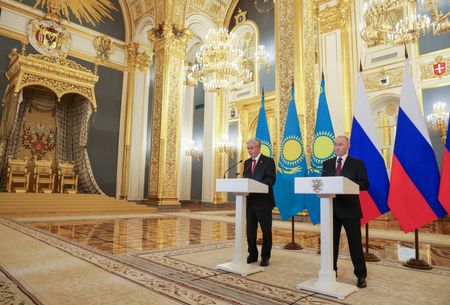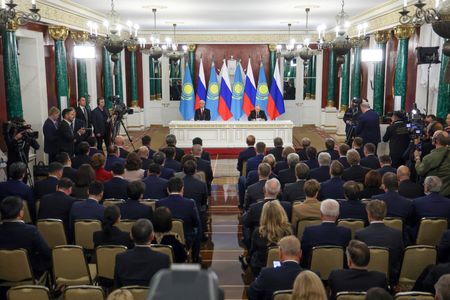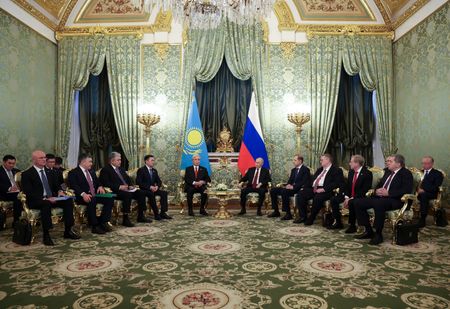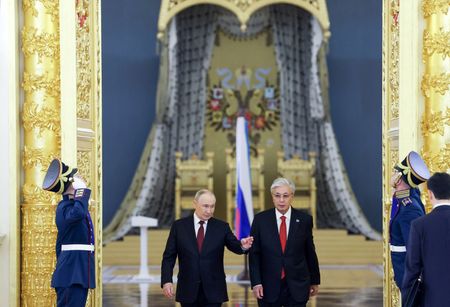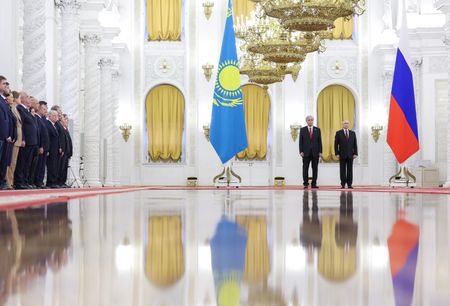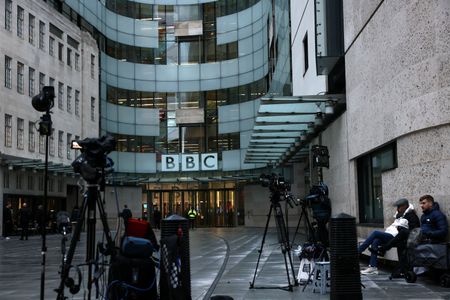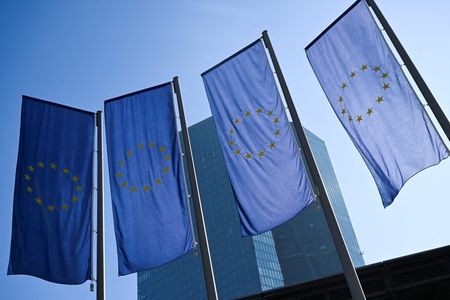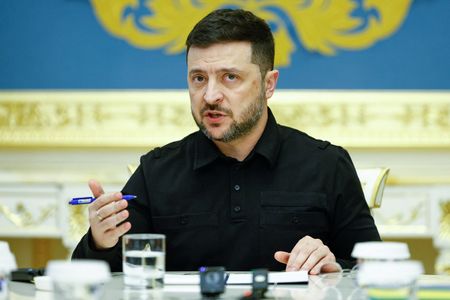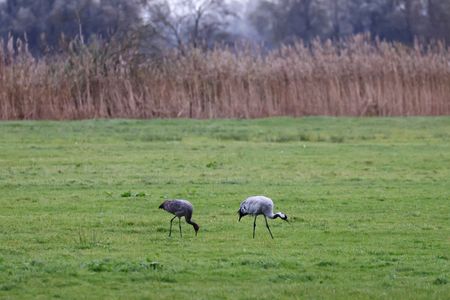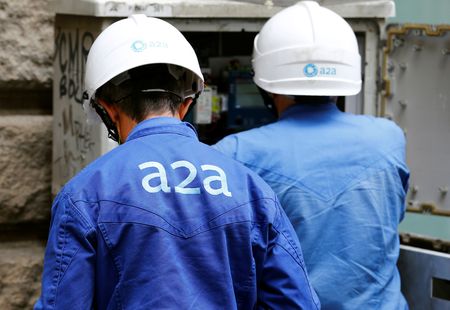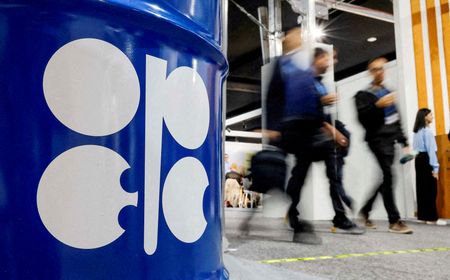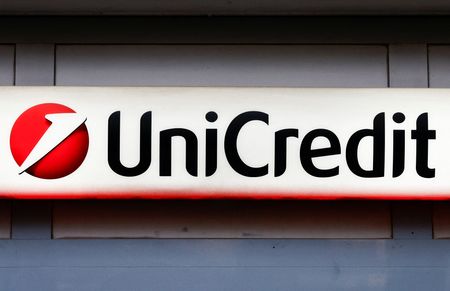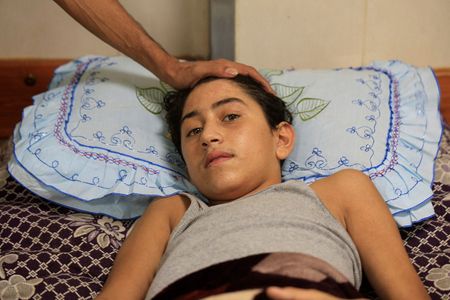MOSCOW (Reuters) -Russian President Vladimir Putin and Kazakh President Kassym-Jomart Tokayev will discuss gas projects and the fallout from U.S. sanctions on Russian oil companies at talks in Moscow on Tuesday and Wednesday, the Kremlin said.
Kremlin spokesman Dmitry Peskov said Putin would also be keen to hear about talks that Tokayev and other Central Asian leaders held with U.S. President Donald Trump in Washington last week.
“If the president of Kazakhstan considers it necessary to inform our president about the content of the contacts he had in Washington, of course that will be extremely interesting for the Russian side,” Peskov said.
US OIL SANCTIONS ON THE AGENDA
Asked whether the two leaders would talk about the impact of U.S. sanctions on Russian oil majors Lukoil and Rosneft, Peskov said: “Our trade and economic cooperation with Kazakhstan is very much multi-faceted. It covers virtually every possible area of cooperation.”
“Therefore, all areas of cooperation will be discussed in detail without fail,” he said.
Both Russian oil companies, which were sanctioned by the Trump administration last month as U.S. efforts to broker peace in Ukraine have stalled, have significant holdings in Kazakhstan, itself an energy giant that exports most of its oil via Russia.
Lukoil holds stakes in the Tengiz and Karachaganak fields, which are operated by Western majors.
WALKING A DIPLOMATIC TIGHTROPE
Kazakhstan has walked a diplomatic tightrope over the war in Ukraine, maintaining close ties with neighbour and major trading partner Russia whilst also expressing support for Ukraine’s territorial integrity.
Russia has long been the principal outside power in Central Asia, though China also enjoys significant influence and Western powers are looking to deepen their own relationships in the region.
Kazakhstan’s Tokayev joined the four other Central Asian presidents in visiting Washington last week, where they held talks with Trump and Tokayev heralded the “beginning of a new era of interaction between the United States and Central Asia.”
(Reporting by Reuters, Writing by Felix Light; Editing by Mark Trevelyan and Conor Humphries)

